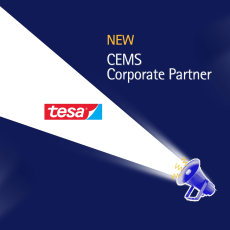For me, as a leader at Coca-Cola, many findings of the CEMS’ research resonated with our recent experience. The scale of the challenges COVID-19 brought and the speed with which they arrived were unprecedented in my lifetime. And so was our response: digital enabled millions of us to take more drastic action than we’ve seen before, even in world wars. With many of us able to work remotely, we could afford to lockdown, although without the heroic frontline workers, we would have quickly faltered.
Get comfortable with being uncomfortable
Huge as COVID-19 is, on the other hand, looking back, we see the 21st century has had no shortage of peaks and troughs: the tech boom and bust was followed by 9/11 and the banking crisis. Each one pushed corporate leaders further into the unknown. And as the pace of change has accelerated from decade to decade, we have become more comfortable with partial knowledge, with being uncomfortable. But when COVID-19 hit, it felt like a whiteout: no roadmap, a brand-new reality to cope with.
Lead with the heart and the mind
One immediate result was to increase the focus on ‘human’ leadership, the skills that help us support and energize our teams. At Coca-Cola, we’ve seen a move away from ‘corporate speak’ to a more authentic style of leadership – more of us sharing personal stories with our teams, for example.
To be effective leaders, we need to be real people, not superheroes: we face similar issues to the people we serve, we have the same ups and downs. And as with the crises that have gone before, this one has proved that showing vulnerability and sharing our tough times can make us more effective leaders – as does careful listening. The best leaders I’ve worked with are in equal parts empathetic, reflective and demanding. And that’s what I aim for myself.
Focus on the essentials
We’ve also seen an acceleration in the shift from perfectionism to agile. Opinion is divided on the Pareto Principle – the idea that 80% of consequences (outputs) come from 20% of the causes (inputs). But since the switch to fully fledged virtual working for so many of us, it’s become clear that managers who get maximum output are the ones who identify and stay focused on the essentials day-to-day, hour-to-hour, even minute-to-minute.
Face-to-face still has its place
I believe this new way of working will be a permanent change. But there are plenty of challenges ahead. Dealing with complex challenges, for example, where stakeholders have diverse or contradictory views, becomes even more complicated when we can’t gather in the same room, air our opinions and share our ideas. Digital cannot nurture connection and trust in the same way that face-to-face does. Maybe it will, one day, but it’s hard to imagine: humans are physical, we thrive on contact. That’s why virtual working works best when you have pre-existing relationships with colleagues and trust is established. New relationships are at a disadvantage, especially for early talent and new joiners, and we need to think of ways to build connection without face-to-face meetings.
From ‘safety first’ to ‘wellbeing first’?
At Coca-Cola we have recognized that adapting to the new ways of working as a result of COVID-19 would have significant negative consequences for many of our colleagues. As well as physical health challenges, we also recognized many employees would be dealing with circumstances which may affect their mental health: loneliness, working at home and looking after small children at the same time, caring for elderly parents, overworking or tragically, loss of friends and family due to COVID-19. By May, however, we’d put in place an employee assistance program which combines emotional and mental health support for employees and their families.
Going modular – from career ladders to career webs?
One final development that has accelerated with COVID-19 is the emergence of what we call modular careers and democratized learning. In today’s rapidly changing world, the top of the career ladder you’ve chosen may have disappeared within the next five years, so it’s better to learn and grow through a series of different experiences which give you adaptable skills.
Last year we launched our Opportunity Marketplace, a platform where people can find new opportunities, big or small, to build skills and experience. It allows us a ‘try-before-you-buy’ approach to new roles or careers. At the same time, we’re putting the learner in charge of their own development choices – that’s what we mean by democratized learning, It may be, for example, that if you work in marketing but want some commercial experience to really understand how marketing adds value to sales, you can work on a project in that area or take a sideways step. So far 600 people have signed up, 140 projects have been posted – 50% of them completed already – and we’ve saved 3,500 person-hours.
As with the changes in leadership style, remote working, and wellbeing support, we were on that path before COVID-19, but the pandemic has driven change faster than we could possibly have envisaged.
Better prepared for future crisis
My hope is that all these changes will help us focus harder and more creatively on the ‘other’ huge crisis we are facing right now. Climate change is the biggest disruption our planet’s seen in millennia. And as with every crisis, there are huge opportunities to be had. The sooner we seriously engage, the more we will all benefit.
For more insights from the CEMS Global Alliance on Leadership in a Post Covid-19 World, visit: https://cems.org/news-events/media-centre/press-center




